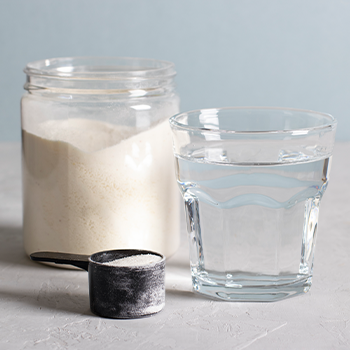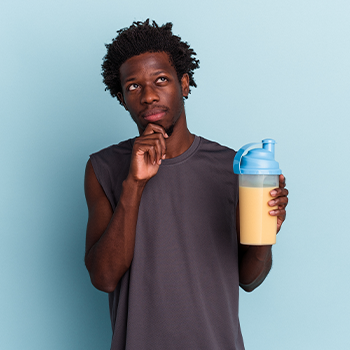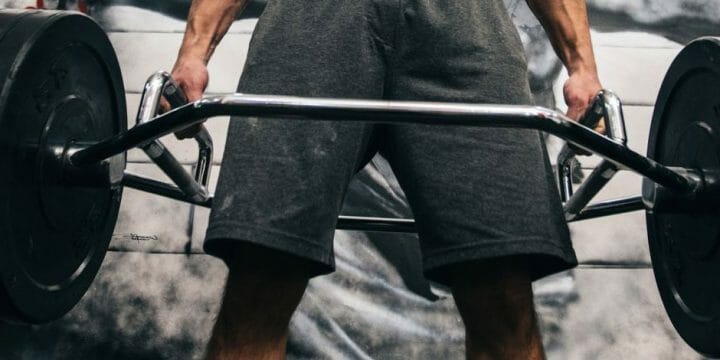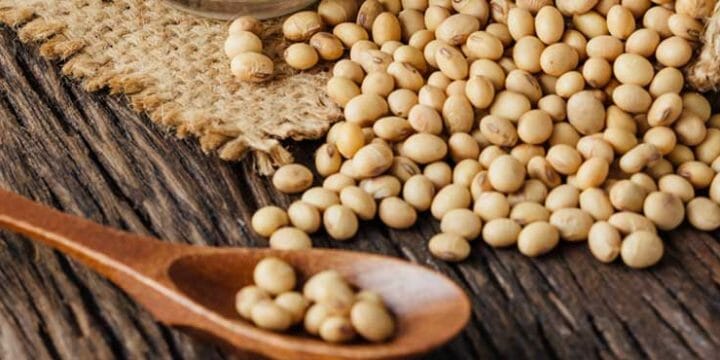Whether you’re a gym rat or someone who’s simply looking to bridge nutritional gaps, getting enough protein is essential for reaching your fitness goals.
However, many people are unsure about how much protein they should consume. And when it comes to protein powders, it gets even more confusing, especially when converting measurements.
As a fitness enthusiast and coach with extensive experience, I've encountered virtually every type of protein supplement on the market. This has given me a deep understanding of how they function and the most effective ways to utilize them for optimal benefits.
In this article, I’ve laid out everything you need to know to measure out your protein powders.
Quick Summary
- To accurately measure protein powder, consider the scoop size, which varies by brand and can differ from the serving size indicated on the nutrition label.
- The amount of protein needed daily varies based on factors like sex, age, activity level, and body weight, with the general RDA being 0.8 grams per kilogram of body weight.
- A standard scoop of whey protein powder isolate typically weighs about 29 grams, according to the U.S. Department of Agriculture.
- In my opinion, it's important to choose protein powders with simple, natural ingredients and consult a healthcare professional to tailor protein intake to individual health needs and goals.
Protein Powder Scoop Size vs. Serving Size

The standard way of measuring protein and calculating its nutritional value is by looking at the contents of one scoop.
According to the U.S. Department of Agriculture, a scoop of whey protein powder isolate weighs about 29 grams [1].
All protein powder supplements have a nutrition facts label that indicates the serving size and how many scoops are in each serving.
To calculate the scoop size, you need to divide the serving size by the number of scoops per serving.
So if each serving is 44 grams and there are two scoops per serving, each scoop of protein powder is 22 grams.
Determining the scoop size tells you exactly how much is in one scoop of protein powder. This information will come in handy, especially if you lose the scoop that came with your supplement.
How Much Protein Do I Need In A Day?

Your daily protein needs vary based on factors like exercise and health goals, but a general guideline is about 0.8 grams per kilogram of body weight, roughly 55 grams for a 150-pound person.
The general Recommended Dietary Allowance (RDA) is 0.8 grams per kilogram of body weight [2]. For example, a 150-pound person would need about 55 grams daily.
However, the National Institutes of Health suggests older adults or those building muscle might need 1.5 to 2 times the RDA [3]. For weight loss goals, 1-2 scoops of protein powder are typically adequate.
Since protein requirements vary, it's wise to consult a nutrition or medical expert before adding protein powder to your diet.
You can also check our article about the calorie count in protein powder.
4 Tips On Using Protein Powders

Here are a few more things to keep in mind when choosing and using your protein powder:
1. Look for simple natural ingredients
Whether it’s whey powder or a plant-based one, always look for protein supplements made of simple, natural ingredients. Check what the label says, and try to find one that contains no artificial fillers or thickeners.
2. Check with your doctor first
If you have impaired kidney function, high-protein drinks might not be for you.
“Check with your doctor if you have kidney disease to ensure added protein is safe for your kidneys and what your limits should be. Protein metabolism can be taxing on the kidneys, according to a 2020 study [4].”
- Leann Poston, Physician & Medical Writer, EatThis.com
3. Plan recipes you will love
Although you can add scoops of protein powder to plain water or milk, there’s really no fun in that.
To increase your protein intake with minimum effort, you should be able to enjoy its taste. Luckily, you can find many recipes online that contain ingredients such as fruits, vegetables, and even chocolate, so you can up your protein consumption without sacrificing taste.
4. Establish a routine
Whether you’re taking protein products to lose weight or bulk up, it can be much easier to meet your goals if you schedule your protein shake intake.
For example, you can take one shake in the morning and one shake after your strength training session.
Protein Powders You May Like:
FAQs
How Many Scoops of Whey Protein a Day Is Safe?
Generally, it’s safe to take one to two scoops (or 25 to 50 grams) of whey protein a day.
But when it comes to serving sizes, it’s still best to follow the serving instructions on the label or the advice of your nutritionist.
Is It Okay to Drink Two Protein Shakes a Day?
Yes, it’s okay to drink two protein shakes a day.
There’s no hard-and-fast rule about the amount of protein shakes you can drink daily. It’s also very unlikely for you to experience long-term detrimental effects from having too much of them in one day.
For most people, one to three shakes is enough to meet their nutritional requirements.
What Happens if You Drink Protein Shakes Without Working Out?
If you take protein shakes without working out, you might exceed your daily calorie needs and gain weight.
Keep in mind that a protein shake can contain hundreds of calories, sugar, or cream to improve its flavor. That’s why some of them are really just milkshakes in disguise.
If you like drinking shakes but hate working out, go for the ones that contain veggies and protein from nuts or seeds and use natural sweetness from fresh fruits.
References:
- https://fdc.nal.usda.gov/fdc-app.html#/food-details/173177/nutrients
- https://www.health.harvard.edu/blog/the-scoop-on-protein-powder-2020030918986
- https://www.ncbi.nlm.nih.gov/pmc/articles/PMC5867436/#SP9
- https://academic.oup.com/ndt/article/35/1/1/5614387
About The Author
You May Also Like







It’s great to see the breakdown of daily protein needs based on body weight. I always struggle to figure out how much protein to consume, and now I have a clearer idea. This will definitely help me balance my intake better.
So, basically, a scoop isn’t always a scoop? No wonder I’ve been finishing my tubs way faster than expected. Time to start weighing things properly.
The distinction between drinking protein shakes with and without working out was enlightening. It’s a good reminder that extra calories can add up if you’re not active
I’ve been drinking two shakes a day, but after reading this, I think I’ve been overdoing it. I’ll try sticking to one scoop and see if that works better for me.